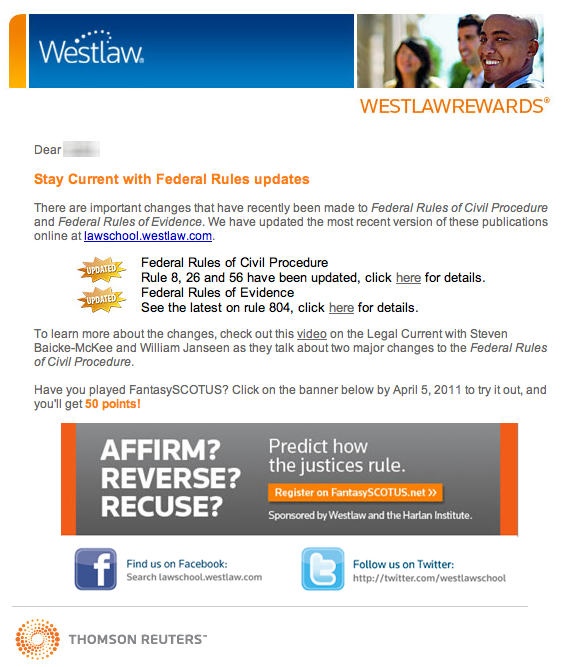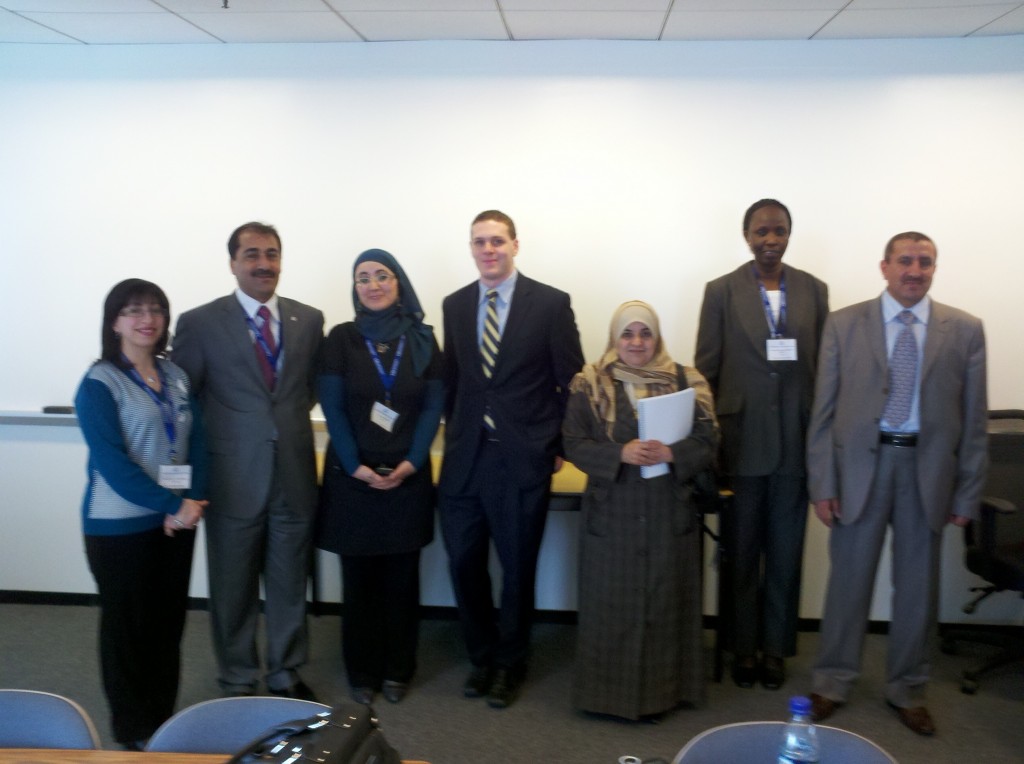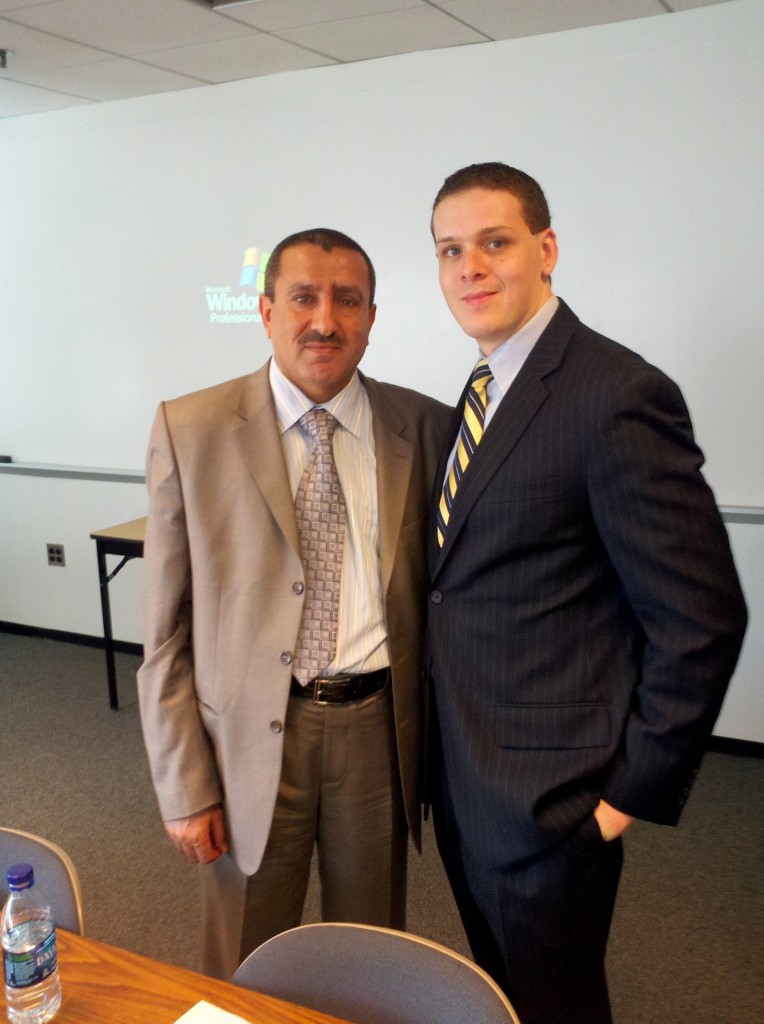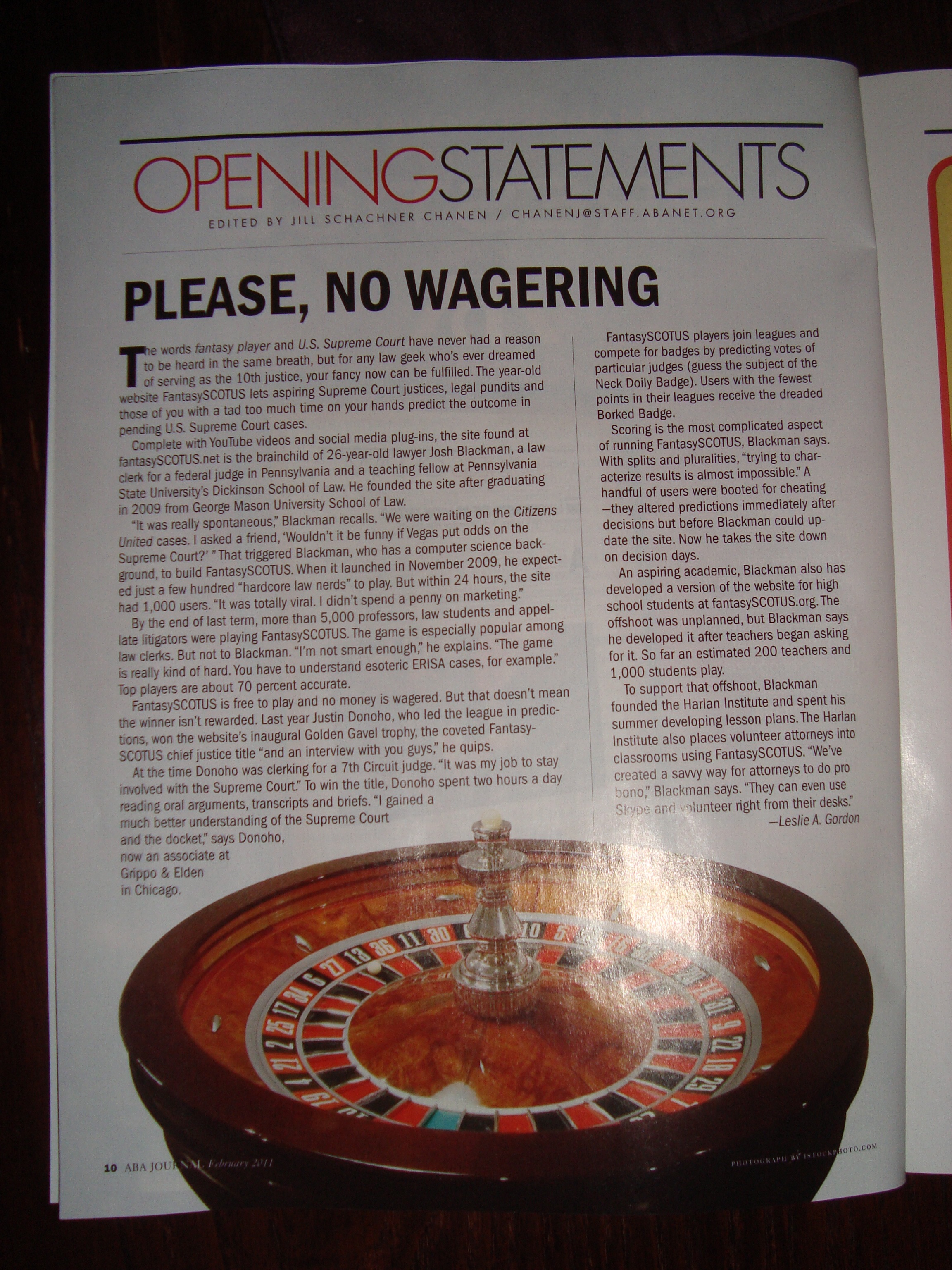Constitution Land – A Theme Park from the Harlan Institute
Release: April 1, 2011
Media Contact:
Josh Blackman (202) 294-9003, JBlackman@HarlanInstitute.org.
Constitution Land, a planned theme park from the Harlan Institute, will immerse “we the people” in the Constitution of the United States. Through virtual reality simulators, thrill rides, and entertaining shows, visitors will be able to experience our Constitution, and the Supreme Court, unlike ever before.
“Constitution Land will be a one-of-a-kind experience,” said Josh Blackman, President of the Harlan Institute. “Only the Harlan Institute, and its innovative approach to civic education could create a theme park to inspire students of all ages to learn more our great Charter.”
The Harlan Institute, in consultation with leading academics, historians, engineers, and theme park enthusiasts, has prepared the plans for this groundbreaking education destination. In addition to exhilarating thrill rides based on landmark Supreme Court cases, Constitution Land will feature virtual reality simulators that explore how cases developed, and what will become of our law. Finally, shows, and first-rate accommodations will make a visit to Constitution Land a must for anyone who wants to learn more about the supreme law of the land.
Constitution Land’s planned attractions include:
Virtual Reality Simulators
- FantasySCOTUS: Think you know how the Justices will vote on a current case? Sharpen your wits and compete in FantasySCOTUS, the Harlan Institute’s Supreme Court Fantasy League.
- The “10th Justice” Experience: What would have happened if the Supreme Court decided a case differently? Marshall ordered Madison to deliver Marbury’s commission? Dred Scott was found to be a citizen? Homer Plessy was not forced to ride in the segregated car? This simulator explores these constitutional what ifs.
- The Originalist Time Machine: What would James Madison think about violent video games, gun violence, or mandating the eating of broccoli? With the Originalist Time Machine, you can ask Founding Fathers avatars–which are programmed based on their writings and philosophies–what they think about contemporary constitutional questions.
- Scrutiny Land: Witness first-hand deprivations of liberty, and determine what tier of scrutiny is appropriate, and whether the act was unconstitutional.
Thrill Rides
- Marbury v. Madison Dueling Roller-Coasters: Learn about President John Adams’ midnight appointees, and John Marshall’s failure to timely deliver Marbury’s commission on this speedy coaster that goes from zero to judicial review in (article) 3 seconds.
- Gibbons v. Ogden Flume Ride: Get wet in interstate commerce as you traverse the treacherous waters between New York and New Jersey.
- The Zones of Twilight Steel Mill of Terror: Based on Justice Jackson’s famed zone of twilight framework from the Steel Seizure case, this thrilling ride flies you through a haunted steel mill during the height of the Korean War.
Shows
- Interrogation. The Experience: Volunteers will be subjected to interrogation technique by trained law enforcement officers to illustrate how duress and pressure can influence a suspect.
- The Footnote Four String Quartet: Enjoy a musical revue exploring constitutional law in song.
Accommodations
- Lochner’s Bakery- Sample some of the most “healthful,” and delicious baked goods, including breads, muffins, and hot cross buns.
- Carolene Products Creamery: Enjoy your favorite dairy products, including cheese, ice cream, and yogurt, made from fresh, or filled milk.
- The Slaughter-House Cases New Orleans BBQ- You have the “privilege” to savor some of the best flavors of Southern BBQ, or the “immunity” to sample healthy desserts.
- Granholm v. Heald Dormant Wine Bar- Imbibe delicious wines imported from out of state.
Construction on Constitution Land is scheduled to begin on September 17, 2012, Constitution Day, outside of Valley Forge, Pennsylvania, near the site of George Washington’s famous crossing of the Delaware River, and minutes away from Philadelphia, the Cradle of our Constitution.
The Harlan Institute
The Harlan Institute’s mission is to bring a stylized law school experience into the high school classroom to ensure that our next generation of leaders has a proper understanding of our most fundamental laws. By utilizing the expertise of leading legal scholars and the interactivity of online games, Harlan will introduce students to our Constitution, the cases of the United States Supreme Court, and our system of justice. Harlan’s long term strategic goal is to develop condensed law school courses that can be taught at no cost in high schools across the country using engaging online programs.
In case you didn't realize it, this is an April Fool's Joke.



 Arabic Constitution
Arabic Constitution

 Abbie (on the left) and Olivia (on the right) Foster, creators of TeenJury.com. (Photograph courtesy of Masslive.com)
Abbie (on the left) and Olivia (on the right) Foster, creators of TeenJury.com. (Photograph courtesy of Masslive.com)